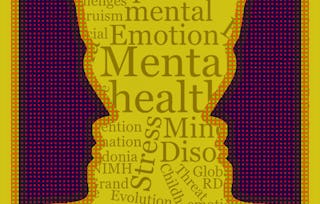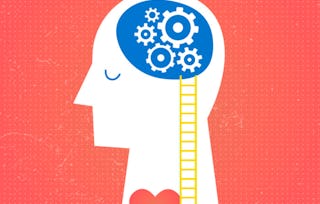The main goal of this class is to gain an introductory exposure to the nature of the psychiatric disorder known as schizophrenia as revealed by the scientific method. We will discuss a broad range of findings from the scientific investigation of biological and psychological factors related to schizophrenia and its treatment. More specifically we will learn about: (1) key symptomatic features through discussion and enactments of interviews with actors portraying many of the cardinal features of the illness, (2) what brain imaging studies (MRI and fMRI) and neurochemistry have taught us about the neuroscience of the disorder, (3) scientific psychological data and theories concerning cognition, emotion and behavior in schizophrenia, and (4) current, evidence-based somatic and psychosocial approaches to treatment. A brief historical overview of the recent emergence of the psychiatric category of schizophrenia will be presented as well.

Schizophrenia

2,474 reviews
Details to know

Add to your LinkedIn profile
2 assignments
See how employees at top companies are mastering in-demand skills

There are 5 modules in this course
Instructor

Offered by
Explore more from Psychology
 Status: Free Trial
Status: Free TrialWesleyan University
 Status: Preview
Status: PreviewUniversity of Michigan
 Status: Preview
Status: PreviewUniversity of Colorado Boulder
 Status: Preview
Status: PreviewThe University of Sydney
Why people choose Coursera for their career

Felipe M.

Jennifer J.

Larry W.

Chaitanya A.
Learner reviews
- 5 stars
80.47%
- 4 stars
17.01%
- 3 stars
1.69%
- 2 stars
0.56%
- 1 star
0.24%
Showing 3 of 2474
Reviewed on Mar 30, 2020
I loved this course! I'm only 16,but i hope to have a future working with mental illness in children ^^ This course improved my knowledge on Schizophrenia so much more,thank you.
Reviewed on Jul 18, 2022
I'm a Mental Health professional whom found this Course on Schizophrenia to be amazing! It was a perfect blend of neuroscience, presentation and theory. Thank you Coursera and of course Dr. Kurtz!
Reviewed on Jul 7, 2021
i loved how accurate and precise and smooth this course was. very happy to have attended this. it really taught me all that i wanted to know and more. the demonstrations were also excellent.

Open new doors with Coursera Plus
Unlimited access to 10,000+ world-class courses, hands-on projects, and job-ready certificate programs - all included in your subscription
Advance your career with an online degree
Earn a degree from world-class universities - 100% online
Join over 3,400 global companies that choose Coursera for Business
Upskill your employees to excel in the digital economy

